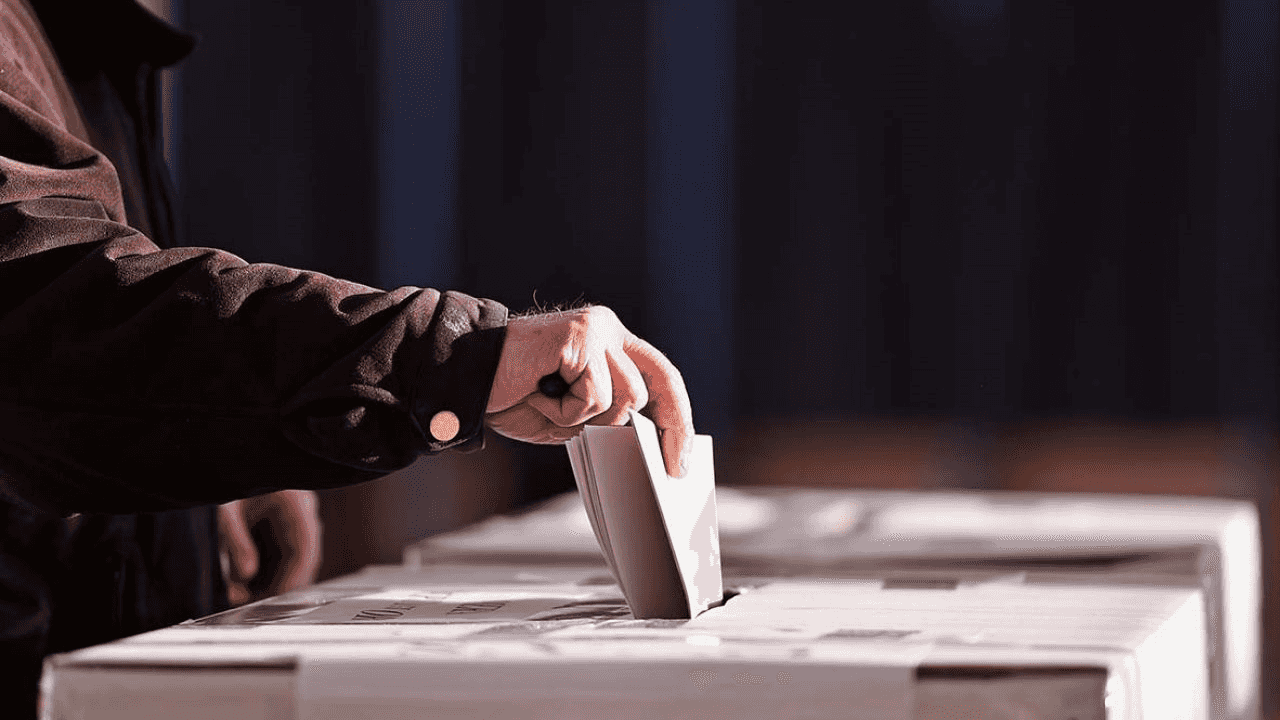Want to Win? Vote Early
Why Campaigns Want to See You Before Election Day
July 25, 2024

Why all the fuss about voting early?
The answer, like with many things, comes down to money. Put less cynically, it comes down to campaigns having limited resources and wanting to maximize the utility of those resources for their candidate.
Early voting, for the longest time, had been non-controversial and also a rather obscure point of public policy discourse.
In 2000, less than 15% of all ballots cast came from early votes (in-person and mail-in). By 2016, that number had risen to around 40%. What started largely as a western phenomenon, swiftly grew into a national standard, with many states adopting the arrangement as each election cycle passed, so that by the time the 2016 election rolled around, the only state west of the Mississippi without early voting was Missouri. The eleven other laggards were largely concentrated in the northeast and the south. Although two Midwestern swing states, Pennsylvania and Michigan, had also yet to adopt the measure.
Of course with the 2020 election, the momentum shifted dramatically towards early voting, with it comprising nearly 70% of all ballots cast. That year, every state but Mississippi had in-person early voting. But as we should expect, that election was likely to appear as an inorganic blip on the trend line rather than actually defining the new norm. (Evidence of this came in 2022, where election day voting rebounded to 50%). But regardless, 2020 was the year when early voting truly came into the public eye and, like with most things that do, it quickly became political.
"Republicans vote on election day, and Democrats vote early." Early voting became a proxy war for opinions on COVID-19 restrictions and faith in the integrity of elections.
That's how it was in 2020 and 2022, at least; however, you may have noticed that Republicans have been singing a different tune in 2024. There's a good reason for that.
Imagine for me that you are a campaign manager. Let's imagine you have $1,000 to spend to get out 100 of your people to vote. Your rival campaign manager also has a $1,000 and also has a 100 die hards he needs to turn out. All the minds are made up; whoever gets more people to turn out, wins. You tell all of your people to vote on election day and spend your cash telling them to do just that. Your rival campaign manager encourages his voters to turn out early.
You lose the race. Why?
The first thing to understand is that not all voters are built the same. Some are less likely to turn out than others. So-called "super voters" are going to vote in almost every single election, whether you ask them to or not. But some voters may only turn out for the presidential election and the midterms. Some may only show up for the presidential election. And still others will vote even less frequently than that. As you move across that spectrum, voters will need more and more encouragement to actually cast their ballot. With each of these groups of voters, there is no absolute guarantee that they will turn out at all, and if you pursue an election day only strategy, you won't know for sure that they did until after polls have closed -- too late for you to do anything about it.
The other thing to know is that states compile lists of those who have voted early, which campaigns are able to request and receive daily.
What this allows campaigns to do is to encourage its voters to vote early, and when they vote, the campaign can check off those voters from their turnout list. Once they're off the list, they'll stop taking up a share of the advertising budget, and the campaign can hone in on all of our other supporters who have not voted yet. This allows a campaign to work more efficiently with its get-out-the-vote efforts by only targeting those voters who have not yet voted. If your super voters have already voted, there's no sense in sending more messaging (and precious campaign cash) their way. These super voters were already likely to turn out in the first place, but since they voted early, you know for sure that they did. And your can spend your campaign budget accordingly.
As early voting goes on and more names get checked off the list, campaigns can target those individuals who haven't voted yet, who tend to be among those with a lower propensity to vote in the first place. This allows a savvy campaign to get as much juice out of their budget squeeze as possible. And, by the time election day rolls around, you're mostly just left targeting those low propensity voters at that point -- who may need more money sent their way for them to vote at all -- because you have already banked the votes from your super voters.
Republican leaders relearned this wisdom following disappointing outcomes in both the 2020 and 2022 elections, and they have done an effective job in warming their base back up to the idea. In combination with early voting, the RNC is also now pursuing ballot harvesting, a long ired strategy pursued by Democrats. Republicans, and the public at large, might not like that ballot harvesting is legal, but where it is legal, Republicans are prudently taking advantage of it because they know that -- complain all that you want to about its legality -- it's still going to be there. And they know the other party will use it because they can. If the other party is going to play hardball, you might as well too; otherwise, you shouldn't complain at the end of the day if the game doesn't go your way.